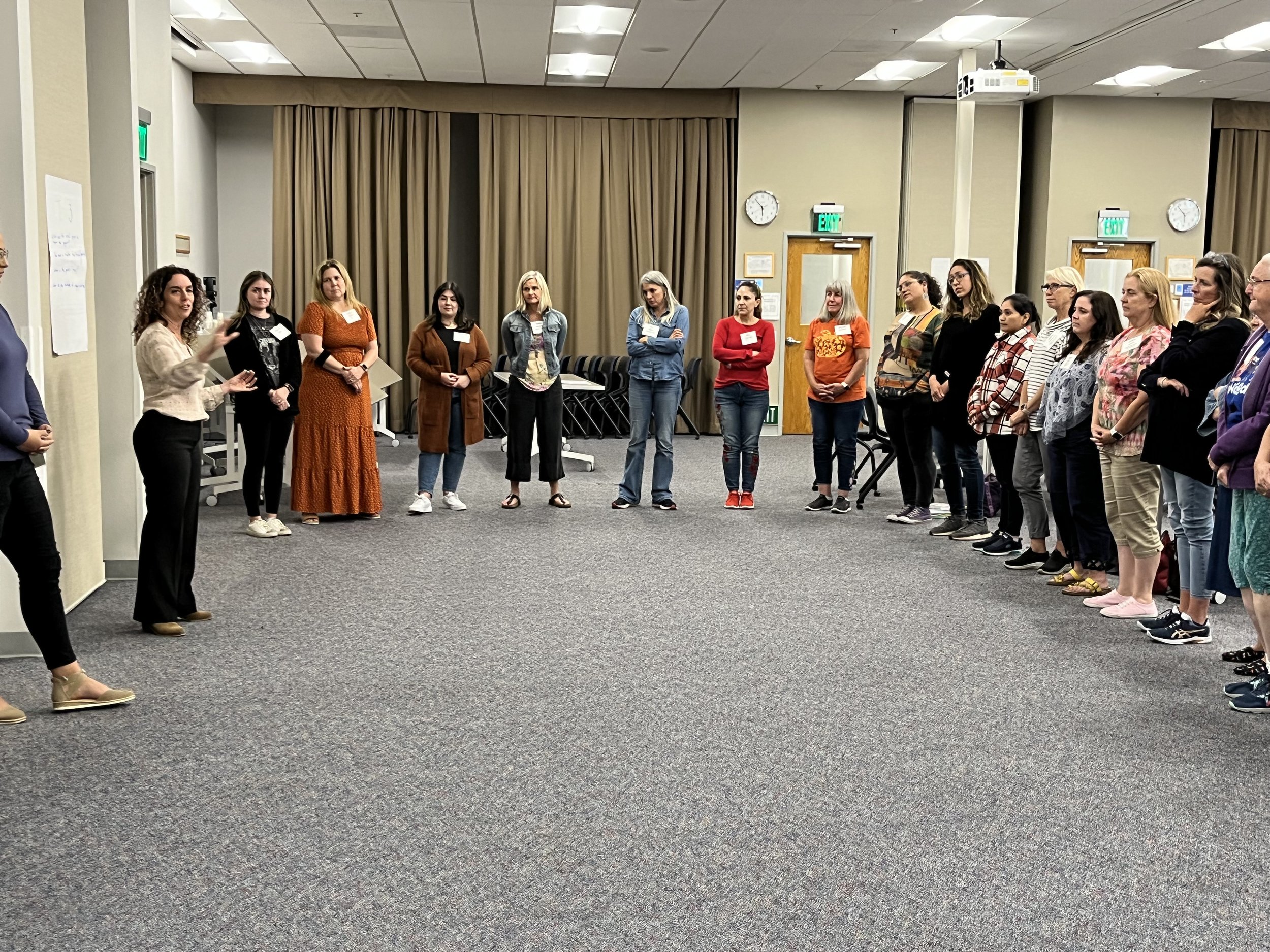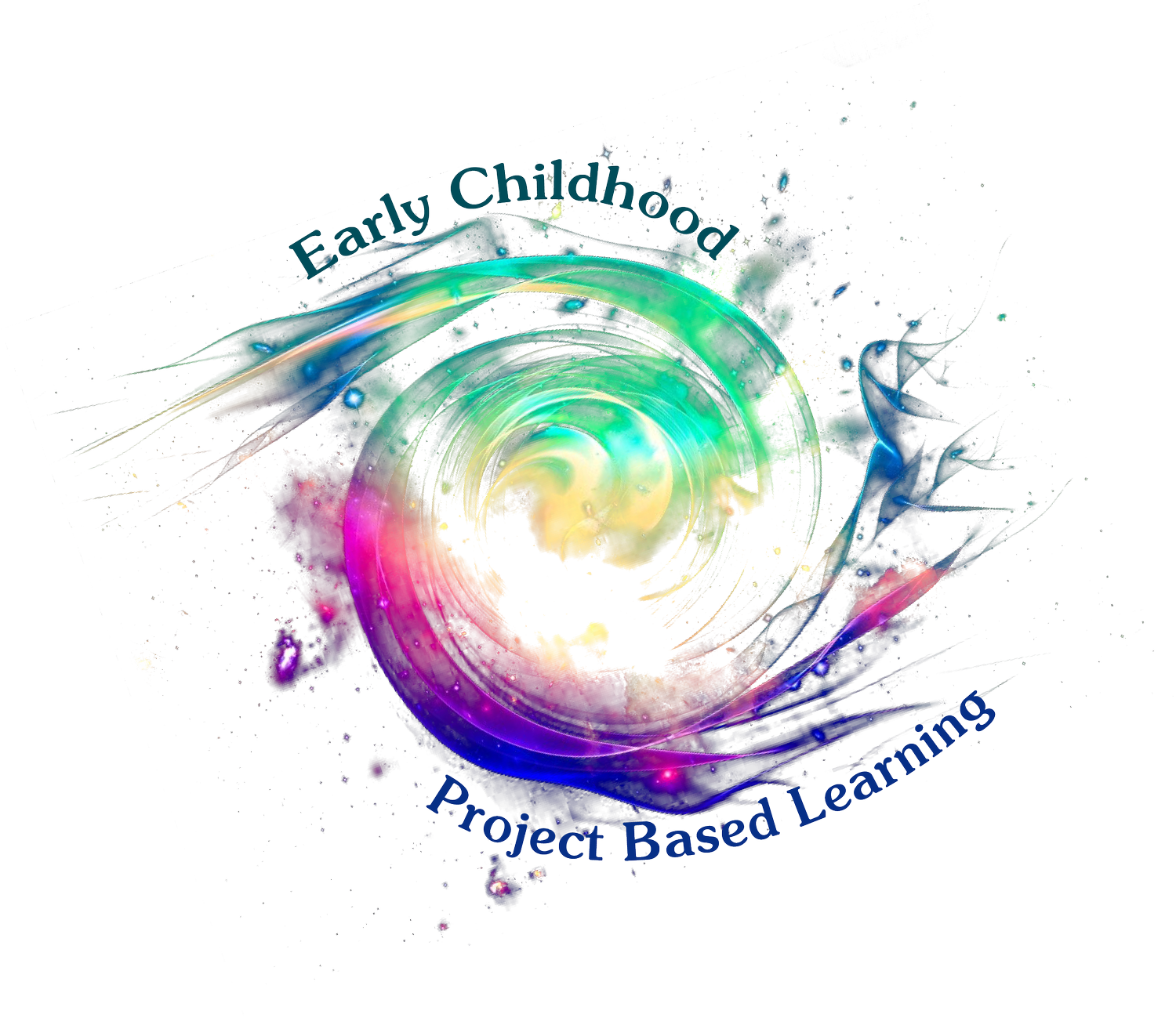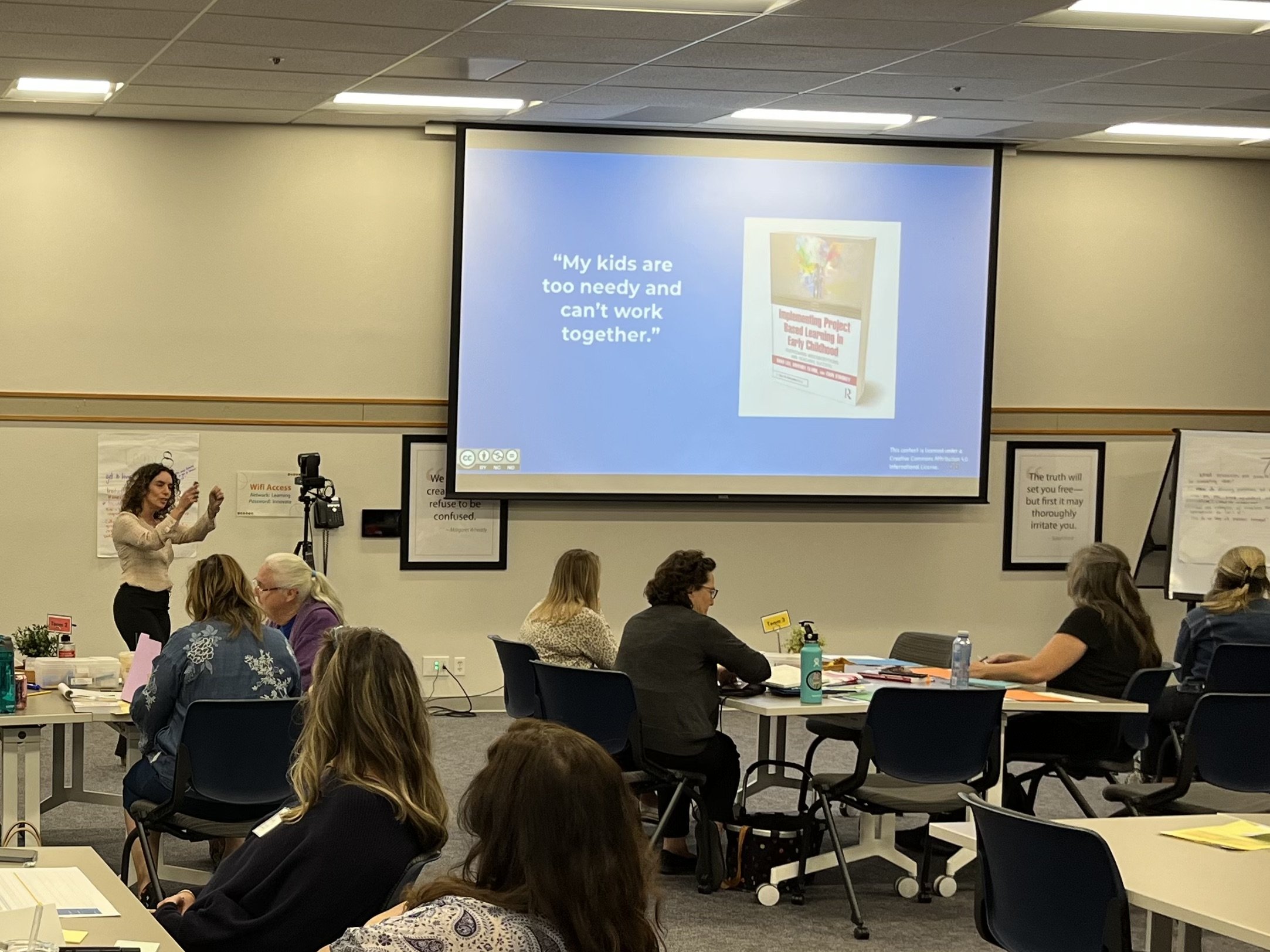
Early Childhood PBL
Community of Practice
“Sara was wonderful and a wealth of information. I would love more time with her! Especially after we have a chance to dive deeper into her book.”
Overview
As schools embark on meeting the needs of 4-year-olds as a part of Universal PreK (UPK), we have an opportunity to redesign innovative learning environments that inspire curiosity, authenticity, and engagement for our students. In this Community of Practice (CoP), participants will learn the many benefits of implementing Project Based Learning in early childhood. They will gain tools and resources to design PBL units aligned with the state standards that support young children in developing key academic skills and the social and emotional competencies that lead to greater independence as learners.
Learning Outcomes
Increase awareness of Project Based Learning as an instructional approach
Develop an understanding of the constructivist principles and learner-centered practices
Make connections between workshop content and current classroom practices
Engage in new learning about how to integrate academic content and social and emotional learning into projects
Understand how the State Preschool Standards and Curriculum Frameworks are used when project planning
Understand and engage in the project planning process for one project, specifically focusing on sustained inquiry and integration
Thoughtfully consider the strengths and needs of all learners when designing a project, especially multilingual learners and students with disabilities
The CoP is designed for early childhood educators who work in a variety of settings and contexts including preschool teachers, TK and kindergarten teachers, administrators, instructional assistants, child care workers, special education teachers, as well as staff members who work in before- and after-school care. It will be a safe, collaborative learning environment for all participants, no matter where they are on their educational journey.
If you are a California educator, our Community of Practice meets the requirements of Focus Area D of the UPK Implementation Plan and the CDE UPK Curriculum Guidance around whole-approach and skills-specific curriculum. Therefore, we have the option to design a CoP that awards participants 1 ECE credit for 15 hours of participation. Credit would be awarded upon the following criteria.
Attendance and participation at an in-person workshop (7 hours)
Attendance and participation in on-going virtual professional development (3 hours)
Successful completion of a guided book study, including reading and reflecting on the text Implementing Project Based Learning in Early Childhood: Overcoming Misconceptions and Reaching Success (Lev, Clark, and Starkey, 2020) (5 hours)
To book a Community of Practice in your school, district or county, contact us!
“I really enjoyed the pacing. We didn’t spend too much time on one topic, and if we did, it was because there was interest in it. It was great. Loved all the provided information and materials.”


